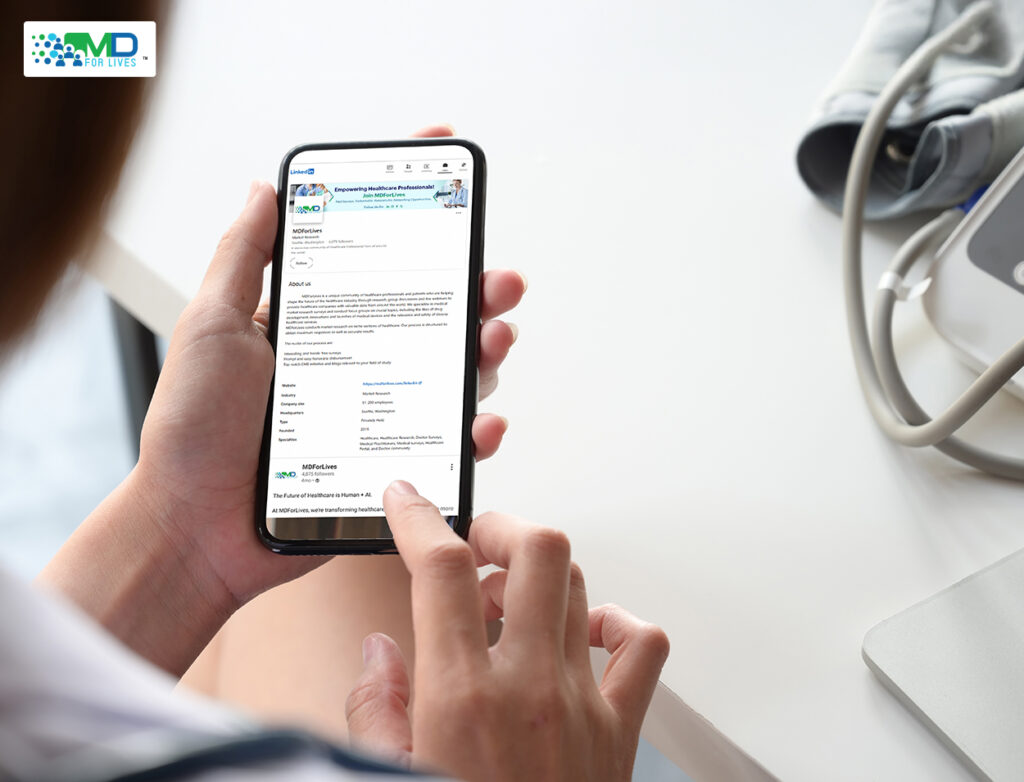It’s late at night, and Kathy, a nurse working in a busy city hospital, finds herself scrolling through her phone between shifts. She comes across a post from a fellow nurse in another state, sharing insights about the latest research in wound care. Kathy feels a connection, even though she’s miles away, and realizes something important. This is the kind of professional growth she’s been looking for! Nurses everywhere are discovering ways to use social media to connect with peers, stay updated on research, and advance their careers. But it’s not always that simple! How many times have nurses shared a quick post or a photo from their shift thinking it’s harmless? A study from the Journal of Nursing Regulations shows that over 55% of nurses are using social media for professional growth. That’s a good number but the digital world can also blur the lines between personal and professional. So, how can nurses embrace different platforms for networking and learning, without risking their careers or social media and nursing ethics?
Finding that balance isn’t easy! That’s why it’s crucial for nurses to understand how to grow professionally online while safeguarding their credibility and protecting their licenses.
What are the Benefits of Social Media in Nursing
We’ve already established the fact – nurses are increasingly turning to social media to propel their careers forward. It’s no longer just about staying in touch with friends or family! Nurses connect with colleagues worldwide, learn about the latest medical advancements, and engage with thought leaders – all from the palm of their hand.

So, why are so many nurses making this shift? Let’s check out the benefits of social media in nursing:
- Access to learning resources: Platforms like YouTube, LinkedIn, and X (formerly Twitter) are perfect for industry discussions, webinars, and online courses that allow nurses to keep up with the latest practices and research.
- Networking opportunities: Social media allows nurses to connect beyond their immediate work environment. Nurses can engage with specialists, mentors, and even potential employers in a way that wasn’t possible before.How often has networking been limited to in-person events or the same local colleagues? Social media breaks down those walls, offering nurses the chance to expand their professional circle on a global scale.
- Real-time industry updates: Staying informed about the latest trends and updates in nursing is no longer something that only happens at conferences. With social media, nurses can follow key health organizations, join specialized groups, and instantly get access to breaking news about treatments, innovations, or even job openings.It has become so easy to stay up-to-date without leaving home. Isn’t it?
- Peer support: Nursing can be a tough profession, both mentally and physically. Those long shifts and emotional challenges can feel isolating. Social media provides an outlet where nurses can share experiences, get advice, or simply find support from others who understand exactly what they’re going through.
- Side income opportunities: Social media has opened a whole new world for nurses to generate side income. Whether it’s by creating educational content, participating in paid surveys that appears on their feed, or even promoting health products, nurses are finding ways to earn extra money outside their regular shifts.
Moreover, the potential to build a personal brand has become a significant motivator for many! Nurses are showcasing their expertise through medical surveys, blogs, videos, and social media posts, gaining recognition within the healthcare community. This not only boosts their credibility but also enhances their visibility in a competitive job market!
Social media offers nurses a unique opportunity to grow professionally, but it also comes with the responsibility of maintaining professionalism and ethical standards. Well, the key lies in knowing how to harness its power effectively while avoiding potential pitfalls.
Understanding the Negative Effects of Social Media in
Posting about a challenging day at work, sharing patient experiences, or venting might seem harmless. But unfortunately, these actions can blur the boundaries between personal and professional lives. What might be an innocent remark can sometimes lead to unintended ethical breaches, especially when patient privacy is involved.
The risk isn’t just about what nurses post! It’s also about how their content might be perceived by others. A post might appear safe to the person sharing it, but it could damage their professional image or violate HIPAA guidelines. Nurses should always ask themselves: “Does this content align with the values and professionalism expected in my field?”
It’s important to remember that once something is shared, it can be spread far beyond the original audience! So, how can nurses strike a balance between engagement and upholding social media and nursing ethics?
Best Social Media and Nursing Practices to Follow
Social media is a great place to unwind, connect, and even learn. But for nurses, it also comes with a professional responsibility! By following a few best practices, nurses can engage with social media in a way that upholds social media and nursing ethics without putting their careers at risk.
- Understand institutional guidelines: Well, every healthcare organization has its own set of social media policies. Nurses should familiarize themselves with these policies to understand what’s acceptable to post. When they know the rules, it’s easier to avoid accidental mistakes!
- Keep personal and professional lives separate: Creating different accounts for personal and work-related content can help keep boundaries clear. This way, personal thoughts and experiences stay private, reducing the risk of crossing professional lines.
- Pause and reflect before posting: Sometimes, it’s easy to get carried away. But taking a moment to pause and ask: “Would I be comfortable if this post was shared at work?”This small step can help avoid a big mistake. Whether it’s a comment, photo, or status, thinking twice about the potential consequences ensures that everything shared is in line with professional expectations.
- Prioritize patient privacy: Sharing anything related to a patient’s health can be a slippery slope. Even if names aren’t included, any detail that could identify a patient should be avoided at all costs!
- Share accurate, evidence-based information: Misinformation can be just as harmful as unprofessional conduct. Nurses are trusted for their expertise, so it’s important to share only verified, reliable information. Whether posting about health tips or sharing research, making sure the content is credible and evidence-based is a must.
- Maintain professionalism in interactions: Social media is a great space for conversations, but should nurses engage in heated arguments or debates online? Well, maintaining professionalism is crucial, especially when interacting with colleagues or patients. A respectful tone in all online exchanges upholds the integrity of the nursing profession and ensures interactions remain positive and productive.
The impact of social media on nursing is excellent, but it’s important to approach it thoughtfully and responsibly. When nurses make the effort to stay professional online, they can enjoy the benefits of digital engagement while maintaining the trust of their patients.
Start Using Social Media for Professional Growth & Side Income

We’ve explored the many benefits that social media offers to nurses – whether it’s for networking, learning, or gaining career exposure. But how can nurses take advantage of these opportunities without compromising their professionalism? Well, it’s all about balance!
Nurses can thrive on social platforms, but it’s essential to maintain clear boundaries and professional ethics. So, can nurses use social media without risking their careers? Absolutely! While social media can provide short-term opportunities, it’s not always the most stable or rewarding source of income!
But here’s the thing: If a nurse is committed to side income, paid medical surveys offer a smarter option for passive income for nurses. Nurses can share their expertise, contribute to important research, and receive better rewards for their insights. All of this without the risks that come with mixing personal and professional content online!
If you’re a nurse looking for a safe, rewarding way to earn extra income, MDForLives offers just that! Join MDForLives and start growing professionally while earning additional income and making a difference to healthcare!
FAQs:
-
Can nurses post patient stories or cases on social media?
Not without ensuring proper consent and full anonymity. Even if the names and faces of patients were removed, tiny details can still be enough to identify someone. Despite the post being intended as an innocent or educational post, posting them with the risk of a privacy breach is definitely not worth it.
-
Is it acceptable for nurses to share photos in their scrubs on social media?
Yes, but with caution. A photo in scrubs isn’t an issue on its own, but the background and context matter. Is there a whiteboard with patient info behind you? Are you wearing your ID badge? Are you on hospital property? These things can land you in hot water. Keep it clean, neutral, and free of anything that links back to the patient or your employer.
-
Can nurses provide medical advice on social media?
General health tips are usually less risky than more specific ones. It’s better to put out a disclaimer that social media isn’t a substitute for a clinical diagnosis. If you’re sharing health information, make sure it’s evidence-based rather than personalized and comes with a clear disclaimer.
-
Should nurses separate their personal and professional social media accounts?
That would be wise. Keeping personal and professional content separate protects your privacy and helps establish clear boundaries. One account can be where you share memes and weekend plans, and the other where you engage with nursing peers and post relevant content. It also reduces the chance of mixing up audiences—or accidentally sharing something on the wrong page.

MDForLives is a global healthcare intelligence platform where real-world perspectives are transformed into validated insights. We bring together diverse healthcare experiences to discover, share, and shape the future of healthcare through data-backed understanding.






